The Indian National Congress (INC) seeks to defeat Indian Prime Minister Narendra Modi’s authoritarian Bharatiya Janata Party (BJP) government in the April–May 2024 parliamentary elections. To do so, it and 27 other parties have constituted the Indian National Developmental Inclusive Alliance (INDIA). But recent state assembly elections in five states reveal a varied picture of INDIA’s ability to succeed against the BJP.
Related Reading
The INC claimed victory in Telangana, but the BJP secured victories in Chhattisgarh, Madhya Pradesh and Rajasthan. The INC’s failure to effectively engage and accommodate potential allies led to the electoral setback. INDIA’s strategy aimed to maximize seats for each party rather than maximizing the seats for the alliance as a whole by fostering a broad collective opposition effort.
INDIA cannot win if it acts like a softer version of the BJP
The INDIA alliance encounters several political and organizational constraints when it comes to countering the BJP. First and foremost, the INC and several of its INDIA partners are struggling to effectively counter the BJP by proposing genuine alternative policies on crucial matters like urban employment and public healthcare. The INC state party in Rajasthan did put forth some alternative policies, but it failed to implement them enthusiastically, introducing them at the butt end of the administration’s tenure. So, the proposals had little lasting impact.
For lack of its own policy proposals, the INC has sometimes aped the BJP’s proposals. An INC policy advisor went so far as to publish an article recommending that the party drop its defined benefit pension scheme, deeming it fiscally irresponsible. The INC in Madhya Pradesh even tried to adopt a soft Hindutva approach that, unsurprisingly, ended in failure.
The INC and its INDIA allies need to understand that defeating the BJP in the battle of ideas will be extremely challenging as long they compete within the realm of neoliberalism. The ruling party has strongly established its ownership over the neoliberal project. Any opposition to the BJP’s neo-fascism must necessarily oppose neoliberalism as well.
Even if INDIA is willing to declare intellectual independence from neoliberalism, it must still have the courage to put its ideas into action. The INC, regrettably, exhibits a great deal of organizational pusillanimity, particularly in states where it directly competes with the BJP.
The INC’s lack of the courage to take decisive action is further exacerbated by internal conflicts, factionalism, poor coordination between the central and state units, insufficient presence at the electoral booth level, disempowered grassroots workers, errors in ticket distribution, and habitual refusal to accommodate other non-BJP parties, even those who are part of INDIA. This is why the INC keeps losing in state elections. Following the announcements of the election results in Chhattisgarh, Madhya Pradesh and Rajastha, INDIA member parties Janata Dal-United and Rashtriya Janata Dal voiced their concerns regarding the Indian National Congress’s bullheadedness. Ultimately, Janata Dal-United to exited INDIA and formed a government in Bihar with BJP. This recent move by the CM of Bihar has tipped the scales in favour of the BJP.
Proposals for a winning policy platform
INDIA must get serious if it wants to beat the BJP.
It is imperative for INDIA to swiftly develop a unified set of principles that will serve as the foundation for clear messaging. This common agenda should encompass a reaffirmation of constitutional principles, safeguarding democracy, promoting secularism, revitalizing federalism with a focus on decentralization within states, ensuring genuine and authentic social justice by establishing gender rights, ensuring caste census and reclaiming national institutions from subversion by the BJP.
But broad values need to translate into specific policy initiatives. These include a comprehensive employment guarantee program, reintroduction of a universal public distribution system, establishment of a universal public healthcare system, expansion of public housing and infrastructure, implementation of a universal social security system and the enhancement of ecological sustainability.
In order to ensure the success of these policies, additional legal reforms will be crucial: combating hate crimes and bringing offenders to justice, implementing a one-third reservation for women in legislatures, and prohibiting policy and regulatory capture. Unless these happen, progress may be illusory.
While state governments have limited powers compared to the union government, those state governments led by INDIA’s constituent parties might consider immediate implementation of some of these ideas as policies.
INDIA’s ability to operate as a cohesive force relies heavily on the INC recognizing its inability to beat the BJP independently. The INC should consider contesting fewer seats in the 2024 elections to strengthen the alliance’s presence on the ground. Concentrating effort where it matters most will yield better results than dividing energy on contested Lok Sabha seats. INDIA must strategically evaluate and analyze the “winnable” seats, focusing on resources to gain a competitive advantage. Retaining and mobilizing incumbent voters is paramount to succeed in the 2024 elections. Finally, in states and on seats where the BJP is a significant contender, avoiding “friendly contests” is imperative.
The proposals we put forth are not unrealistic and align seamlessly with the continuous democratic movement that opposes the policies of the BJP-led union government. This authoritarian administration has pushed the constitutional order to the brink. The stakes are high, and INDIA cannot afford to fail. However, amidst the challenges, there is still a window of opportunity for INDIA to make a significant impact in 2024. The need for collective action and strategic initiatives is more pressing than ever to safeguard the democratic fabric of the nation.
[Valentina Ortiz Elian edited this piece.]
The views expressed in this article are the author’s own and do not necessarily reflect Fair Observer’s editorial policy.
Support Fair Observer
We rely on your support for our independence, diversity and quality.
For more than 10 years, Fair Observer has been free, fair and independent. No billionaire owns us, no advertisers control us. We are a reader-supported nonprofit. Unlike many other publications, we keep our content free for readers regardless of where they live or whether they can afford to pay. We have no paywalls and no ads.
In the post-truth era of fake news, echo chambers and filter bubbles, we publish a plurality of perspectives from around the world. Anyone can publish with us, but everyone goes through a rigorous editorial process. So, you get fact-checked, well-reasoned content instead of noise.
We publish 2,500+ voices from 90+ countries. We also conduct education and training programs
on subjects ranging from digital media and journalism to writing and critical thinking. This
doesn’t come cheap. Servers, editors, trainers and web developers cost
money.
Please consider supporting us on a regular basis as a recurring donor or a
sustaining member.
Will you support FO’s journalism?
We rely on your support for our independence, diversity and quality.




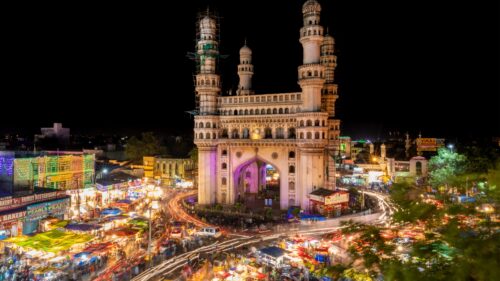
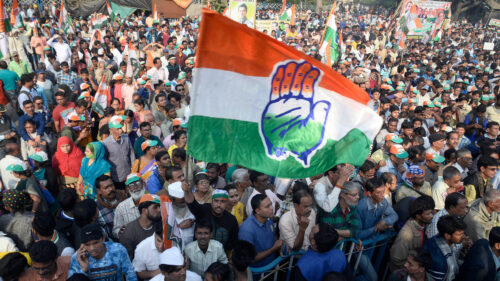

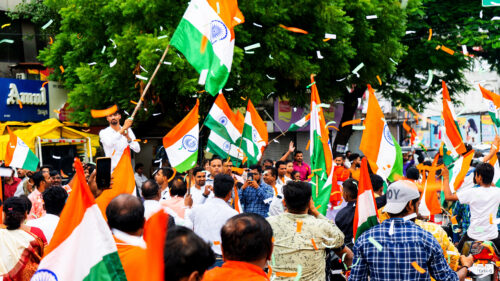
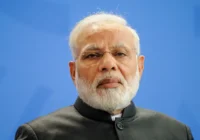

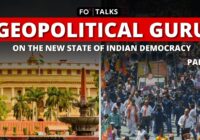

Comment